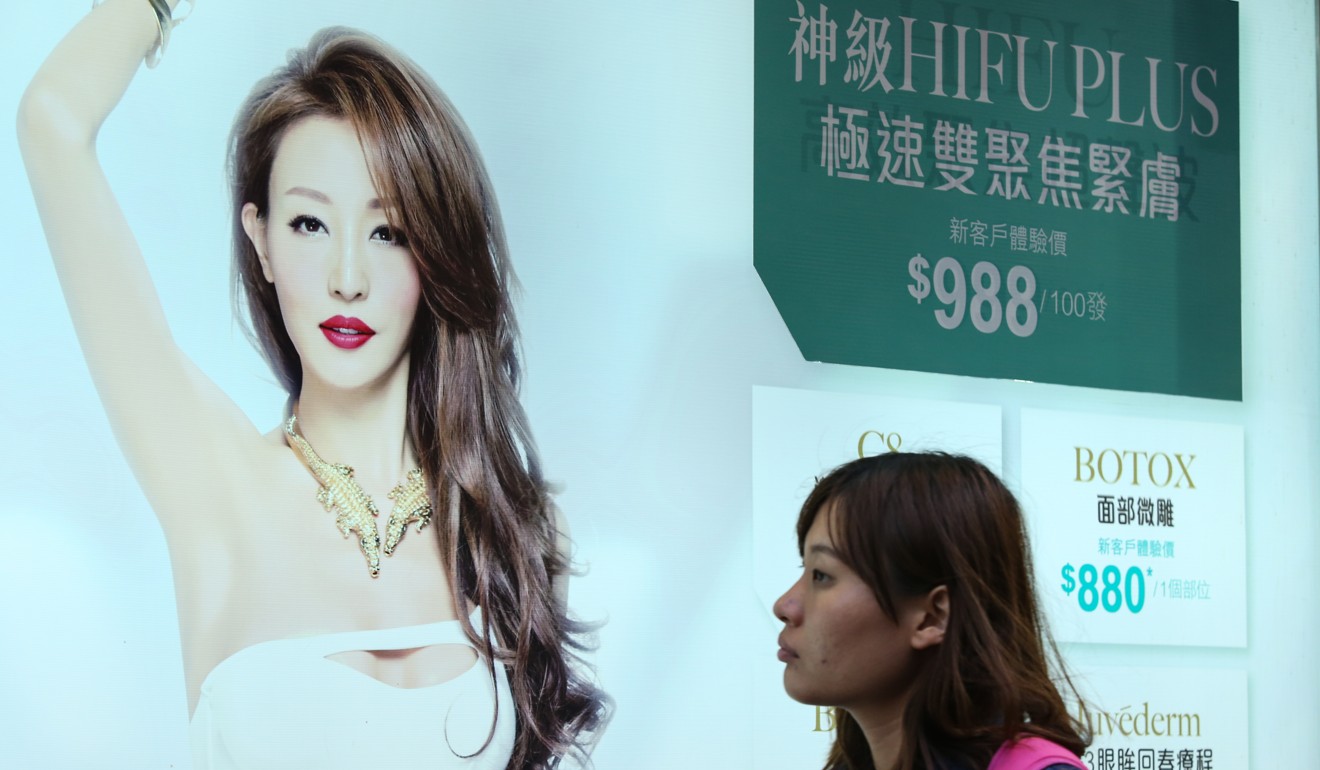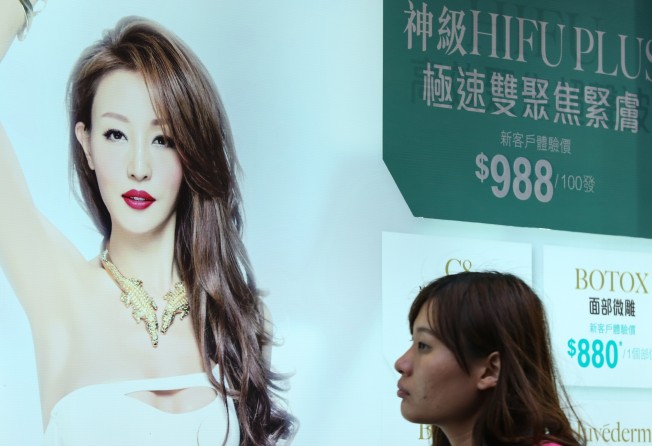
Gyms and beauty salons could be made to refund unhappy customers as Hong Kong government proposes cooling-off period
- New plan targets two trades that were subject to most complaints, commerce secretary says
- Prepaid contracts worth HK$3,000 or more would be subject of new no-questions-asked money back clause

Hong Kong customers unhappy with beauty or gym services they have signed up for could get a full refund for contracts worth HK3,000 or above, under a government plan to impose a statutory cooling-off period.
The proposal, released on Tuesday for a three-month public consultation, targets salons and gyms, which would have to reimburse customers who prepaid, but then changed their minds.
According to the government, one option would be to install a cooling-off period of three working days, and a refund period of seven working days. Another option to be put to the public, is for a seven-day cooling-off period, with refunds to be issued within 14 days.
Political parties and the Consumer Council all welcomed the long-awaited move, but said they hoped the government would consider expanding it to other industries.

A consumer may take civil action if a refund is not given in time, or may report the case to the Customs & Excise Department. In the event that happens, the department will be able to issue an enforcement notice to the business, and non-compliance could result in a fine.
The consultation document does not specify how much that would be though.
Secretary for Commerce and Economic Development Edward Yau Tang-wah said the two trades had been targeted because they attracted the most complaints in recent years.
Between 2013 and 2018 customs received 1,124 complaints from customers who felt intimidated when signing up for services. And 77 per cent of these complaints involved beauty salons and fitness centres.
In one extreme case, a customer was lured into signing a beauty service contract of HK$1.5 million.
“As a starting point, we propose dealing with the two trades first,” Yau said. “If the situation changes in the future, we may amend the law to cover other trades.”
The city’s consumer rights watchdog has long called for a mandatory cooling-off period, and has warned customers to be wary of beauty salons and gyms that flattered or coerced them into spending thousands on expensive treatment and packages.
In a 2018 report, the council said the cooling-off period should also apply to timeshare contracts, and proposed exempting only purchases worth less than HK$500.
On Tuesday, chairman Paul Lam Ting-kwok said the council preferred the seven-day cooling-off period, with a 14-day refund, as it allowed more time for consumers to consider if they wanted to continue the service they had signed up for.
“We came up with HK$500 based on overseas jurisdictions, while the government explained that drawing the line at HK$3,000 was based on the number of [customs cases],” Lam said.
According to the proposal, beauty salons that only provided nail treatments, massages, or hair loss treatment, and those operated in government hospitals, schools, or clubhouses in hotels and residential properties will be exempted from the cooling-off period.
Similarly, fitness centres not equipped with exercise machines, such as ballet schools, dance studios and tai chi studios, and those run by government hospitals, schools, sports associations and clubhouses in hotels and residential estates will also be exempted.
However, industry leaders have reservations.
Nelson Ip Sai-hung, founding chairman of the Federation of Beauty Industry, said the industry fundamentally opposed the regulation as they did not believe it was the answer to stopping high-pressure sales tactics.
“Why doesn’t the government target the minority of the industry who adopt inappropriate sales tactics, instead of labelling and stigmatising the entire industry?” he said.
Ip said the industry, of which more than 90 per cent was small businesses with fewer than 10 staff, would prefer shorter cooling-off periods, so as to reduce the administrative difficulties in implementing the new regulation.
Legislator Alice Mak Mei-kuen, of the Federation of Trade Unions, said: “The government should widen the scope to include other trades as the Consumer Council has proposed.”
The Democratic Party’s Ramon Yuen Hoi-man expressed similar views, and added that he hoped online purchases could also be covered.
“If online purchases are excluded from the regulation, some unscrupulous businessmen may mislead customers and ask them to buy online to escape from the regulation.”
Yau said the proposal had tried to strike a balance between protecting consumer rights and any possible impact on normal business operations.
He added that the government aimed to present a bill to the Legislative Council by next year.